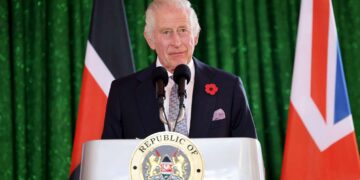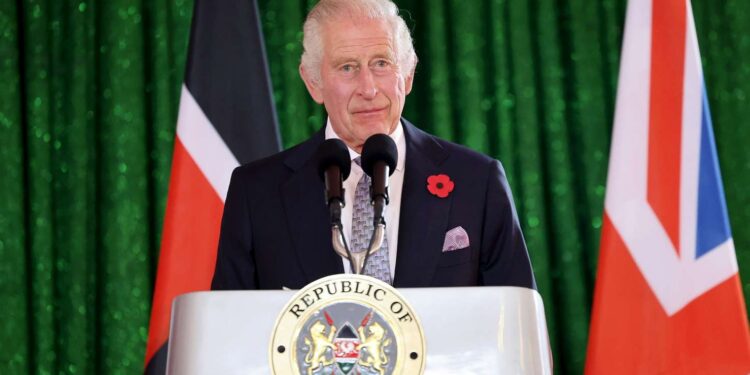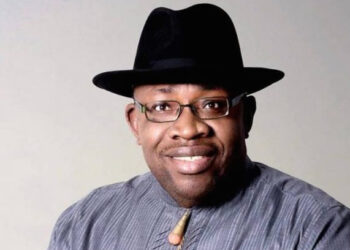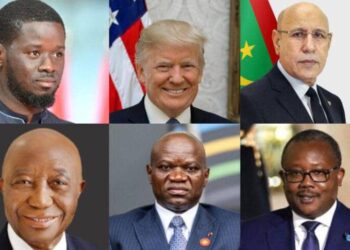By John Ikani
King Charles has acknowledged the “appalling and indefensible acts of violence” perpetrated against Kenyans during their fight for independence from Britain, but refrained from offering an apology.
During a banquet held in his honour in Kenya, King Charles expressed his “profound regret” and “deep sorrow” for the past “wrongs,” a period when Britain’s colonial administration forcefully suppressed Kenya’s struggle for self-rule.
Kenya’s President, William Ruto, commended the king’s “admirable courage” in shedding light on “unpleasant truths.” However, he strongly condemned the colonial response to African resistance as “horrifically cruel” and emphasized the need for “complete reparations.”
The Kenya Human Rights Commission had earlier called on King Charles to provide a “clear and public apology.” The Kenyan uprising, known as the Mau Mau rebellion, began in the early 1950s, fueled by the frustration of some Kikuyu tribe members towards their British rulers, European settlers who owned land in Kenya, and a lack of political representation.
The violence targeted white farmers and Kikuyu individuals suspected of collaborating with the authorities during the “Kenya emergency.” According to the commission, approximately 90,000 Kenyans suffered execution, torture, or mutilation during the British administration’s counter-insurgency.
Speaking after President Ruto, King Charles addressed the 350 banquet guests at the president’s official residence in Nairobi, saying, “It is the closeness of our shared history that has united our people. However, we must also recognize the most painful moments in our long and intricate relationship. The past’s wrongs bring the deepest sorrow and the profoundest regret.”
Charles further recognized the painful struggle for independence and sovereignty and emphasized that there could be no justification for these actions. He expressed his commitment to understanding the past’s injustices and meeting those who suffered due to these actions.
During the first day of their five-day state visit, the king and queen paid tribute to the sacrifices made by Kenyans. King Charles laid a wreath at the tomb of the Unknown Warrior in Nairobi’s Uhuru Gardens National Monument and Museum, which honours Kenya’s fallen heroes, military and civilian. His floral tribute carried a handwritten note that read, “In grateful remembrance – Charles R.”
The royal couple also had the opportunity to preview the Mashujaa Museum, set to open next year, as Kenya approaches its 60th anniversary of independence on 12 December. The museum tells Kenya’s national story and features a Tunnel of Martyrs, documenting the struggle for independence and the sacrifices made, as well as stories of those who perished in recent terrorist attacks.
In 2013, the British government expressed regret over the “torture and other forms of ill-treatment” carried out by the colonial administration during Kenya’s emergency period from 1952 to 1960. They also compensated around 5,200 Kenyans with £19.9 million for human rights abuses.



































